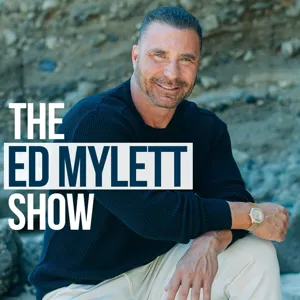Podcast Summary
Beyond Lying: Understanding Bullshitting: Bullshitting goes beyond lying by manipulating perceptions and creating alternative realities, as seen in the actions of figures like Donald Trump.
The concept of bullshitting goes beyond traditional notions of lying. An example of this can be seen in the actions of figures like Donald Trump, who repeatedly asserted falsehoods not with the intention of deceiving others, but rather to manipulate reality and shape public perception. Trump's claims about having larger inauguration crowds or the United States having the highest taxes in the world were not lies in the conventional sense, but rather instances of bullshitting. This behavior is better understood through the framework of Harry Frankfurt's theory of bullshit, which highlights the performative aspect of bullshitting and the disregard for truth. Bullshitting is not just about intentionally misrepresenting facts, but also about manipulating perceptions and creating alternative realities. The Trump era brought renewed attention to this concept, as many writers and analysts used it to understand the unique nature of his relationship with the truth.
Trump's lies and bullshit serve different purposes: Trump's lies distort reality for personal gain, while bullshit can distort truth to illustrate a problem, but both have negative consequences and contribute to mistrust and misinformation
While Trump's lies and bullshit may seem similar on the surface, they serve different purposes. Trump's goal is not just to obscure the truth, but also to advance a narrative about himself. He often makes statements that are technically true but misleading, as well as outright lies. In contrast, the example from "Nudge" about medical malpractice lawsuits contributing to healthcare costs is a form of bullshit that distorts the truth to illustrate a problem, but the figures used are controversial and may be exaggerated. Both Trump's lies and bullshit, as well as the bullshit in the "Nudge" example, have negative consequences and contribute to a culture of mistrust and misinformation.
Bullshit in Discussions about Healthcare Costs: Bullshit arguments in discussions about healthcare costs can undermine trust in information by focusing on narrative rather than truth, highlighting the importance of critical thinking and fact-checking.
Some authors and journalists use vague or misleading statements, caveats, and comparisons to make arguments without providing concrete evidence or logical threads, which can be considered a form of bullshit. This was illustrated in a discussion about a chapter in a book that claimed malpractice lawsuits are a major driver of healthcare costs but then undermined the claim by questioning the accuracy of the numbers used. This phenomenon aligns with the definition of bullshit as described in Frankfurt's book, where the focus is on the narrative rather than the truth. The discussion also mentioned examples of bullshit in journalism, specifically in a recent David Brooks column. The ease with which a bullshit argument can be identified and the harm it causes to the reader's trust in information highlights the importance of critical thinking and fact-checking.
A rosy view of American capitalism without addressing critiques: David Brooks' op-ed oversimplifies American capitalism's challenges, ignoring valid critiques and providing disconnected facts
David Brooks' op-ed, "The Power of American Capitalism," presents a rosy view of the American economy without addressing the valid critiques and context behind the criticisms of American capitalism. Brooks uses the Mississippi River as a metaphor for the American economy, implying that despite negative perceptions, it continues to be a success. He supports this claim with disconnected facts, such as America's higher education and healthcare spending. However, these facts lack context and do not address the critiques of ineffective education and excessive healthcare costs. By not engaging with the critiques directly, Brooks' argument comes across as superficial and dismissive, perpetuating the quintessential bullshit op-ed style.
Criticisms of Neoliberalism beyond Economic Indicators: Critics argue for a focus beyond GDP, addressing social mobility, inequality, and economic dislocation, while some responses can be dismissive and misleading.
While some may point to economic indicators like GDP to defend the neoliberal order, critics are more concerned with issues of social mobility, inequality, and economic dislocation. David Brooks' response, as discussed, can come across as dismissive and misleading by focusing on a few select data points rather than engaging with the substance of these critiques. This behavior, which was also observed in Maureen Dowd's writing, can be characterized as "bullshit" in that it lacks depth and substance, and may even be intentionally misleading. It's important to acknowledge that engaging with opposing viewpoints in good faith and addressing the core issues is a more effective and honest approach.





